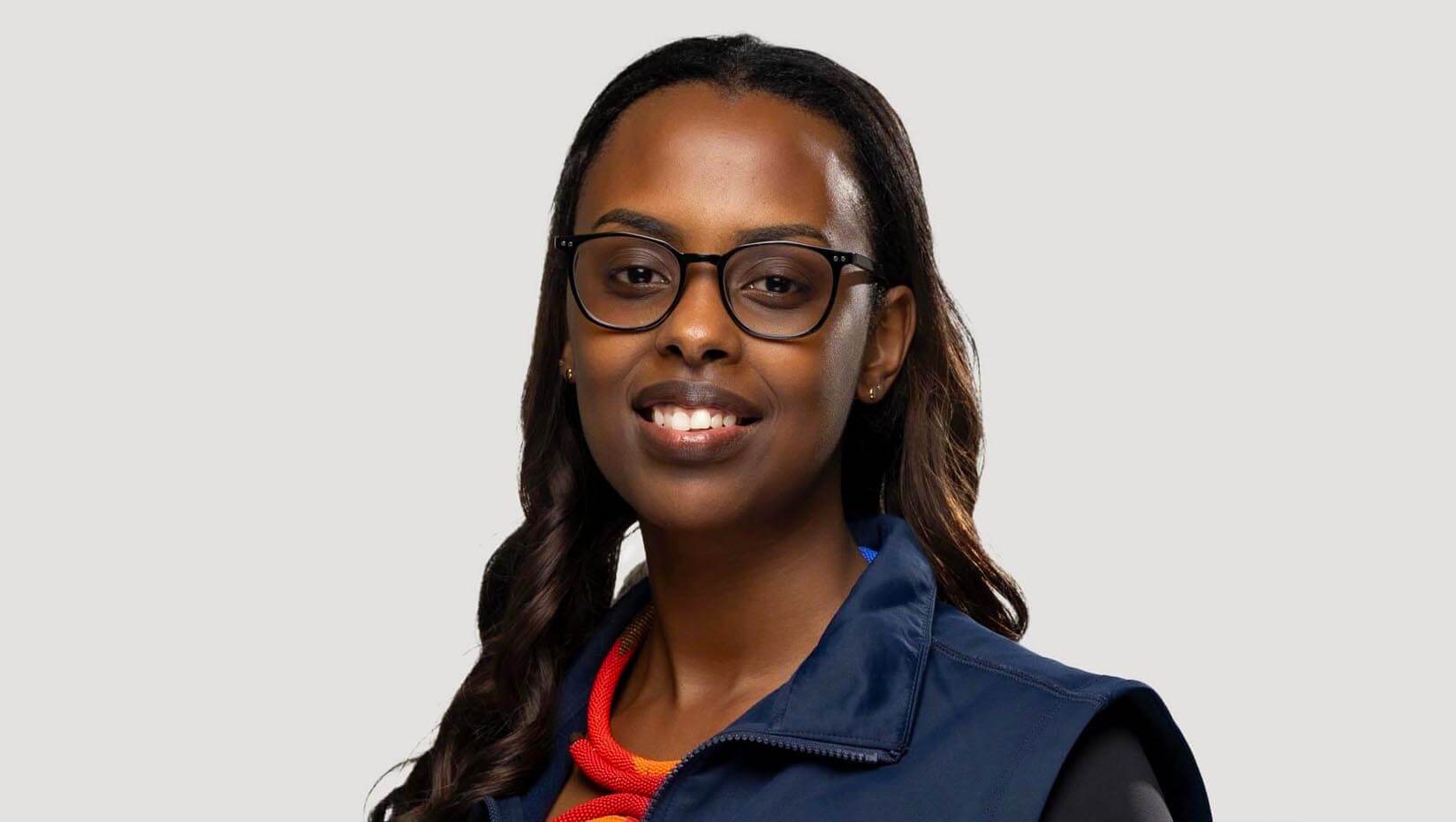
Amanda Ahava Karomba: Outstanding Graduating Student
Amanda Ahava Karomba of Lewiston, Maine, is the Outstanding Graduating Student in the Division of Lifelong Learning. She is majoring in university studies with minors in interdisciplinary disability studies and leadership studies. Karomba pursued her degree online while raising two boys and working as CEO of Happy Haven, an agency that provides direct support to adults with intellectual disabilities. UMaine offered Karomba, who is originally from Rwanda but raised in Maine, the flexibility to obtain a degree and allowed her to incorporate life and work experiences into her learning. After graduating, she plans to expand Happy Haven’s reach by offering a variety of services to underserved parts of the state, while mentoring and creating development opportunities for professionals like herself.
Why did you choose to come to UMaine?
I chose UMaine because the Bachelor of University Studies (BUS) program offered the flexibility I needed as a working adult while also raising a family. It allowed me to integrate my professional experience with academic learning, enabling me to pursue higher education without putting my life and responsibilities on hold.
Describe any research, internships or scholarly pursuits in which you have participated. How have they prepared you for future opportunities in your chosen field?
As an administrator and advocate in the disability services field at Happy Haven — an agency that supports adults with intellectual and developmental disabilities and autism — I played a key role in developing an internship program in partnership with the University of Maine at Augusta. This initiative offers hands-on experience in human services to both our staff who are pursuing their education and interested students. Creating and supporting this program has strengthened my ability to engage in workforce development, advocacy and mentorship within the disability services sector.
Have there been other students who supported and inspired you or exposed you to something new?
The front-line workers, also known as direct support professionals (DSPs) who support the population we serve have been a huge inspiration. Their experiences navigating barriers related to language and access have deepened my understanding of inclusion and the importance of advocacy. Mentoring them has also been a powerful, reciprocal learning experience.
Have you collaborated with a mentor, professor or role model who made your time at UMaine better, and if so, how?
Several professors in the BUS program have played a pivotal role in my journey. Professor Barbara Howard was instrumental from the start, meeting with me early on to map out a clear path to graduation. She helped turn what once felt like a distant dream into a tangible reality. Professors Stephen Gilson and Elizabeth DePoy have also been incredibly supportive. Their teaching not only broadened my understanding of advocacy when it came to disabilities but also challenged me to think critically and approach advocacy from entirely new perspectives.
What has coming to UMaine enabled you to explore beyond academics?
Coming to UMaine has reignited my passion for advocacy and public policy. It has allowed me to connect my personal story and experiences to elevate the voices of underrepresented groups — especially in disability and immigrant communities and provided me with the tools to be successful.
What experiences have you had at UMaine that really highlight the ingenuity of Mainers?
The BUS program itself reflects the ingenuity of Mainers by offering nontraditional students a chance to complete a degree by valuing life and work experience. This flexible, interdisciplinary model meets people where they are, which is a very Maine approach: practical, thoughtful and community-focused.
Did you have an experience at UMaine that shaped or changed how you see the world?
Although the BUS program is primarily online and self-paced, engaging with peers from diverse
backgrounds and professional experiences challenged me in meaningful ways. Through discussion posts and thoughtful exchanges, especially with those who didn’t share my perspective, I was pushed to refine my thinking and articulate my views more clearly. These interactions helped me realize that creating meaningful change requires more than passion; it demands informed, intentional action grounded in understanding and collaboration.
Describe UMaine in one word and explain.
Empowering!
UMaine has empowered me to grow, lead, inspire and advocate personally, academically and professionally.
What’s on the horizon? What are your plans for after you graduate?
After graduation, I plan to continue growing my organization, Happy Haven, while advocating for public policies that support individuals with disabilities and New Americans. I will also continue mentoring others, speaking publicly about the power of education, and working to expand access to the BUS program for adult learners and immigrants. Additionally, I’m committed to lifelong learning and will always seek out opportunities to grow and expand my knowledge.
Contact: Marcus Wolf, 207.581.3721; marcus.wolf@maine.edu
